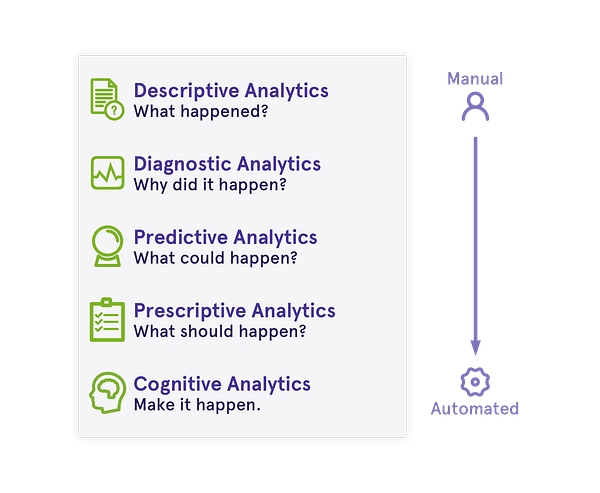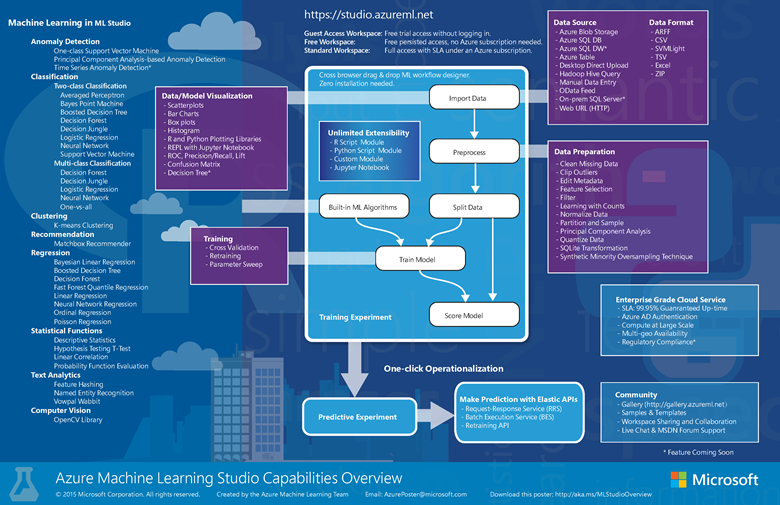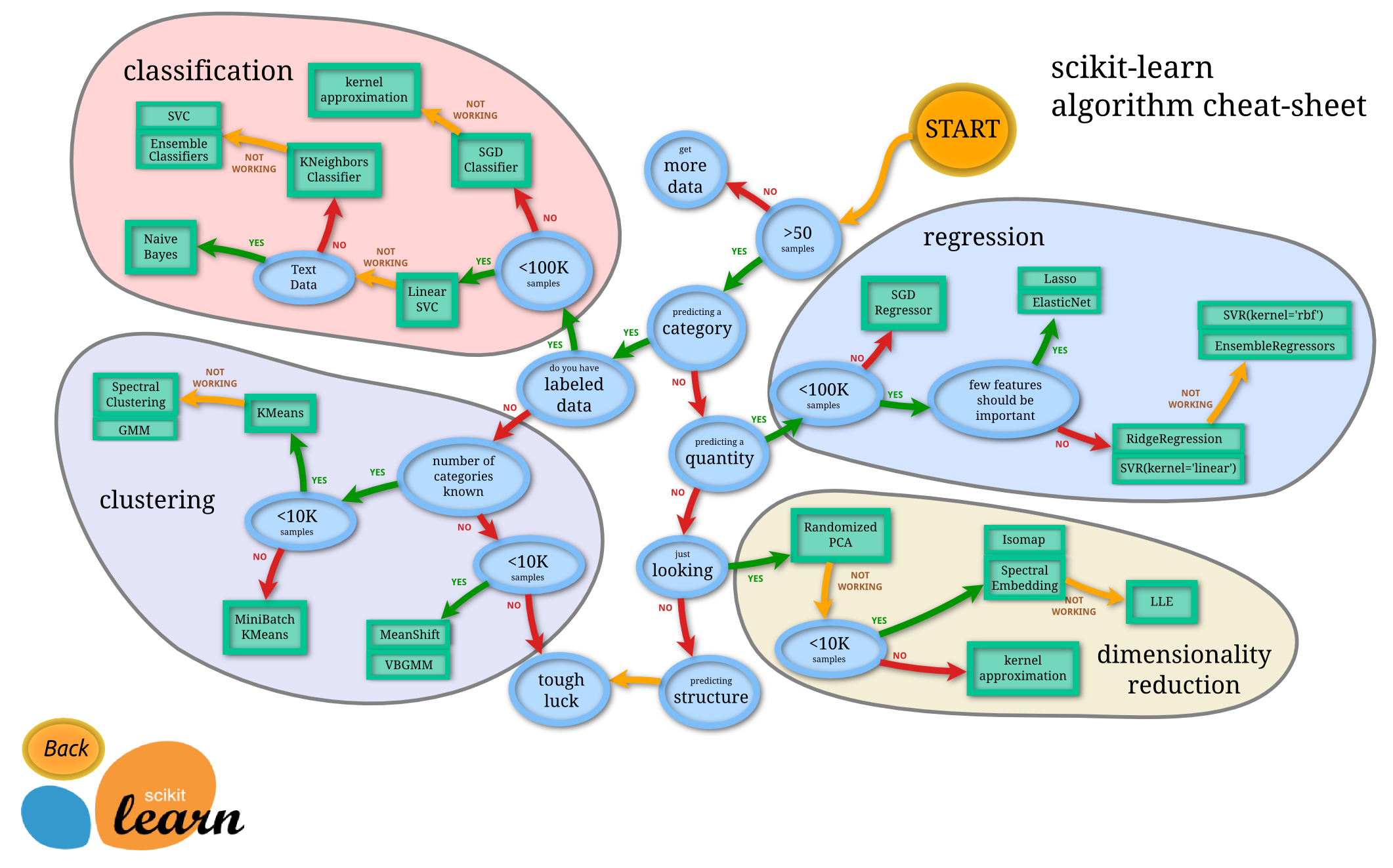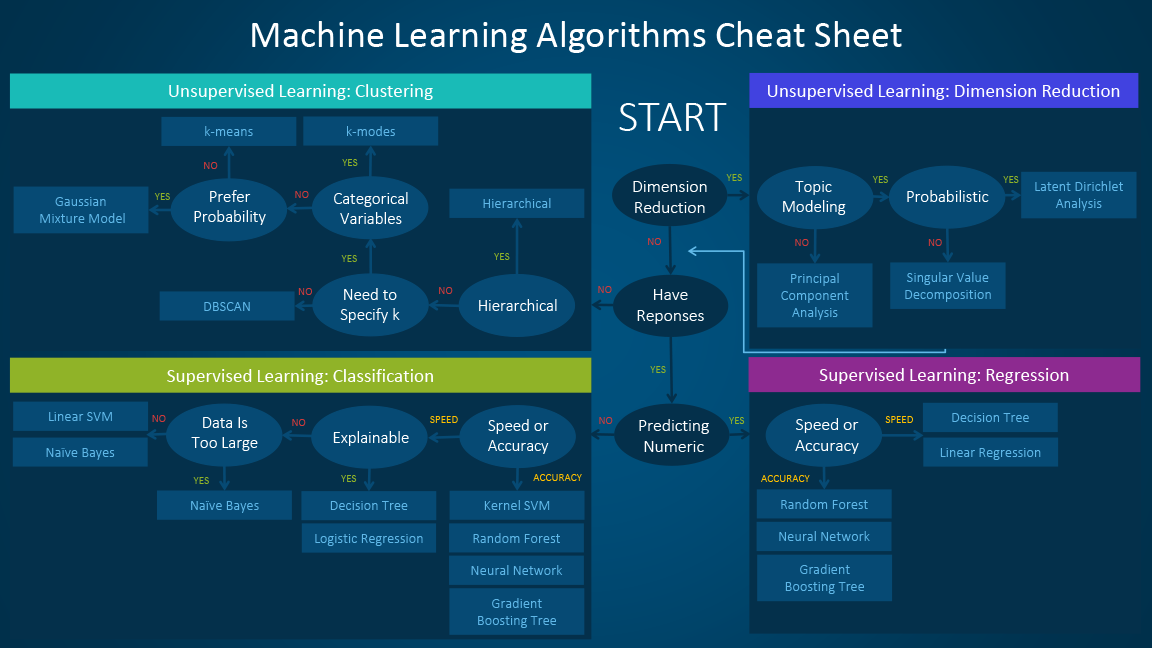Difference between revisions of "AI Solver"
| Line 1: | Line 1: | ||
{{#seo: | {{#seo: | ||
| − | + | |title=AI Solver | |
| − | + | |titlemode=append | |
| − | + | |keywords=artificial, intelligence, machine, learning, models, algorithms | |
| − | + | |description=Tool for down-selecting algorithms for a possible solution to solve your task at hand | |
| − | + | }} | |
<i>Aids in selecting a starting algorithm for your solution; at that point discover similar algorithms to see which works best for your task (and data) at hand.</i> | <i>Aids in selecting a starting algorithm for your solution; at that point discover similar algorithms to see which works best for your task (and data) at hand.</i> | ||
Revision as of 12:07, 2 February 2019
Aids in selecting a starting algorithm for your solution; at that point discover similar algorithms to see which works best for your task (and data) at hand.
Lets get going? I want to...
- ...predict values/quantity
- ...predict categories so I can classify each data point into a specific groups
- ...cluster data points to discover relationships and structure
- ...find outliers; unusual points, anomaly detection
- ...make a Recommendation
______________________________________________________________________________________________________
- Capabilities
- Algorithms & Neural Network Models to learn about approaches used to solve specific AI-related problems
- Model Search
- How to pick an algorithm | Willem Meints

Microsoft Azure Studio Cheatsheet
- How to choose algorithms for Microsoft Azure Machine Learning | Microsoft
- Overview diagram of Azure Machine Learning Studio capabilities | Microsoft


Scikit Machine Learning Map

[http://blogs.sas.com/content/subconsciousmusings/2017/04/12/machine-learning-algorithm-use/ SAS
